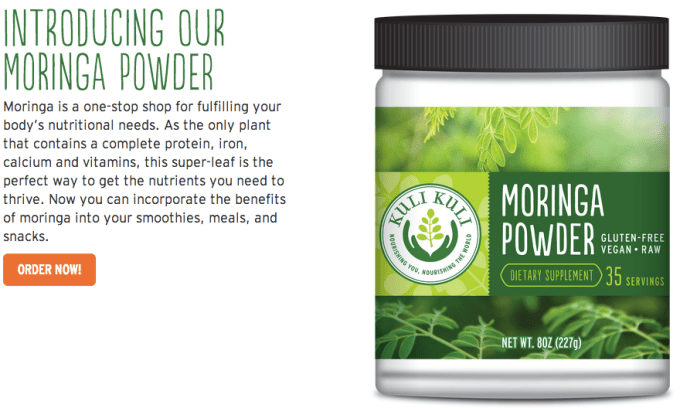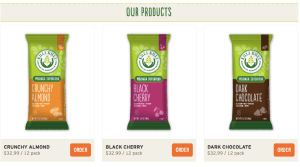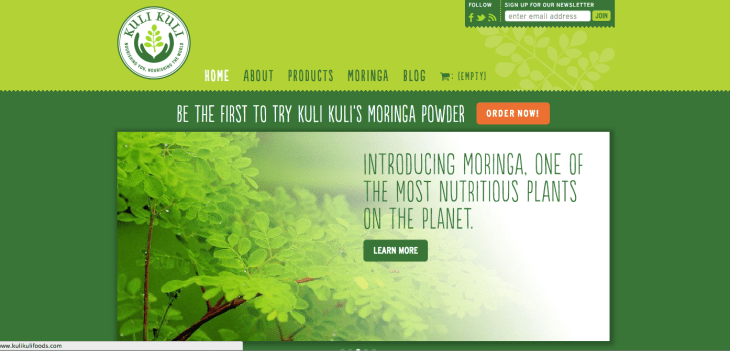Watch out, kale, quinoa, and collards, there’s a new green coming to the market that’s looking to take the superfood crown, thanks to the efforts of Kuli Kuli, a new startup that’s making a play in the $38 billion U.S. health and organic food market.
Selling a West African crop known as moringa as both a powder supplement and as a health food bar, the company is already selling its wares in 150 stores across the country.
Not too shabby for a nearly two-year-old startup launched by a former Peace Corps volunteer.
Kuli Kuli is the brainchild of Lisa Curtis, who spent two years in the Peace Corps in Niger. While working in the country, locals from her village introduced her to the regional delicacy, Kuli Kuli — a peanut and moringa paste that provided a nutrient-rich way to get sustenance in an area lacking a lot of agricultural variety.
More nutritious than kale, according to Curtis, moringa is one of the most nutrient-dense plants in the world. Government officials in Malawi and Senegal have been pushing the crop as a way to introduce more nutrition into the diet of their mostly rural populations.
 Traditionally, farmers have been reluctant to cultivate the crop because there was no external market for it. Through pitching yoga moms on the new superfood, Curtis says she hopes to boost the economies in the African countries where the plant can grow by creating demand.
Traditionally, farmers have been reluctant to cultivate the crop because there was no external market for it. Through pitching yoga moms on the new superfood, Curtis says she hopes to boost the economies in the African countries where the plant can grow by creating demand.
The company is already sourcing its moringa through a women’s cooperative in Northern Ghana and Curtis expects to pump $20,000 dollars into West African economies in 2014.
During our conversation, Curtis rattled off some impressive-sounding stats about the slightly bitter-tasting green. “It has twice the amount of protein that kale has — and it’s a complete protein,” says Curtis, sounding more like a nutritionist than a chief executive. “And it’s got 25% more calcium and three times as much iron.”
The 26-year-old chief executive has raised $355,000 through the crowdsourcing platform AgFunder, lining up some big-time venture capital investors like Foundry Group co-founder Brad Feld. In addition to professional investors like Feld, Kuli Kuli also raised some money from Mary Waldner, the founder of the Mary’s Gone Crackers brand of organic, gluten-free, kosher baked goods.
Curtis says the cash infusion will be used to build out the team and do larger manufacturing runs of the product, as well as boost sales and marketing.
For Curtis, increasing the cultivation of moringa is an issue that’s more than just academic. She told me the story of an evening during her time in the Peace Corps when a young boy fainted from malnutrition in front of her. One of her neighbors told her to get a health bar from the care package she’d received from her mother, but the only way he could describe the snack was as the local dish — kuli kuli.
“We have more than 1 billion people that are overweight in the world, and another 1 billion that don’t have enough to eat,” Curtis says. “We see that if we can build a market for this and get more people to grow it and more people to use it locally, it will help a lot more people sustain themselves in every sense of the word.”
Beyond its economic imperatives, Kuli Kuli (the company) donates 15% of its sales to non-profits that work to cultivate moringa.
“Investment in agriculture is the number one way to pull people out of poverty,” says Curtis.”And if you think of what we’ve been doing in the last 50 years, investment in agriculture has severely declined worldwide.”

